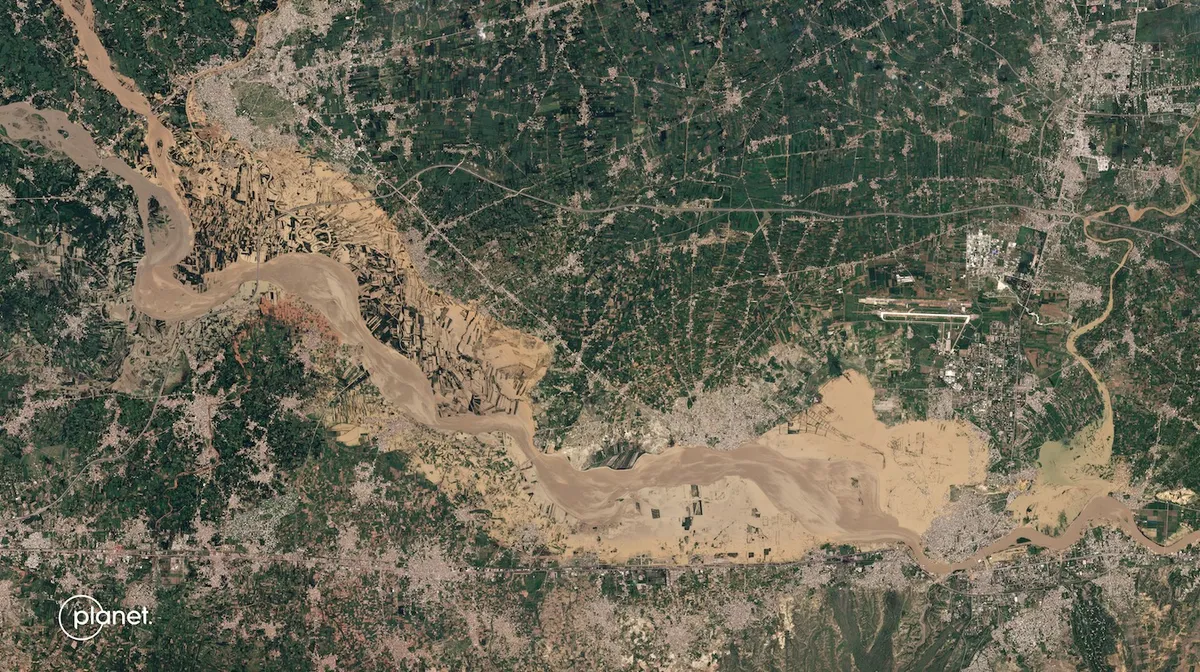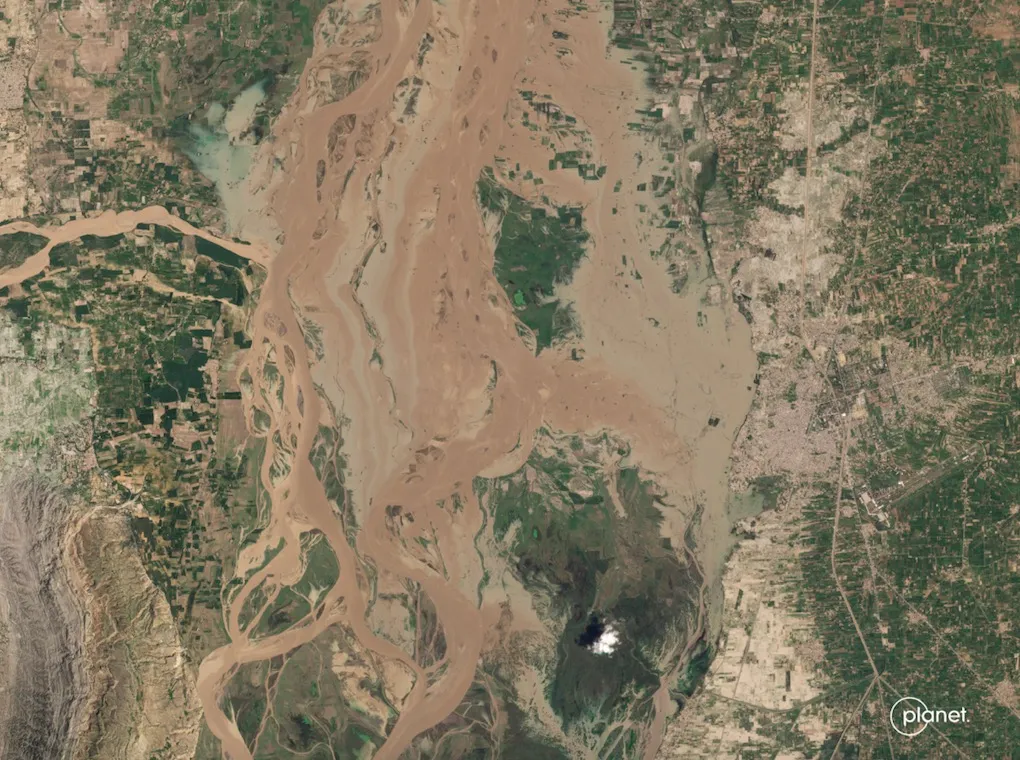Pakistan's flood-related suffering is evident from orbit. This summer's monsoon rains transformed numerous Pakistan rivers into roaring floods, destroying much of the mountainous country's infrastructure. According to Pakistan's National Disaster Management Agency, flooding has killed over 1,100 people and destroyed over a million dwellings since June.
Satellites have been assisting the international community in keeping track of this spreading calamity, which has already touched 33 million of Pakistan's 240 million inhabitants. For example, the San Francisco-based firm Planet shared before-and-after images of two regions flooded by muddy floodwaters on Twitter on Monday (Aug. 29).
Devastating floods, driven by unusually heavy monsoon rains, are surging across Pakistan.
— Planet (@planet) August 29, 2022
Before and after PlanetScope imagery captured of Mianwali and a portion of the Kabul River show widespread damage. pic.twitter.com/Fdh1c7alzw
PlanetScope is the name given to the company's constellation of around 130 Earth-observing "Dove" CubeSats, each about the size of a loaf of bread. The CubeSats are capable of discerning details as tiny as 10 feet (3 meters) across from their perch in low Earth orbit, just like doves. Large, government-run satellites are also monitoring the floods in Pakistan, including the two spacecraft that comprise Sentinel-2, a mission part of the European Union's Copernicus Earth-observation program.
#PakistanFlood 2/2
— Copernicus EU (@CopernicusEU) August 30, 2022
The apocalyptic situation caused by the ongoing #floods in #Pakistan 🇵🇰 is visible from #Copernicus #Sentinel2's 🇪🇺🛰️ orbit at 786 km in space
⬇️This is how the Jafarabad District appeared in the image captured on 29 August 2022 pic.twitter.com/DCeTkcxTQX
The floods in Pakistan are just another example of catastrophic weather occurrences caused, at least in part, by human-caused climate change, according to scientists. The United Nations Secretary-General, António Guterres, asked the world to evaluate the calamity through that prism and to take appropriate action both in the immediate term, to aid Pakistan, and in the long term, to help the globe at large.
According to Guterres, we must stop "sleeping our way to the destruction of our planet" due to climate change. It's Pakistan today. It might be your nation tomorrow.
 | |
| The flooded Kabul River, as seen by a satellite operated by San Francisco-based company Planet on Aug. 28, 2022. (Image credit: Planet Labs PBC) |
 | |
| Flooding in the Pakistan city of Mianwali, as observed by a Planet satellite on Aug. 28, 2022. (Image credit: Planet Labs PBC) |



0 Comments